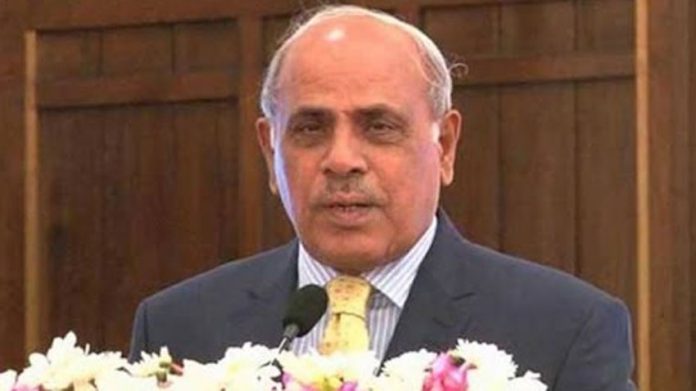LAHORE: Punjab Governor Malik Muhammad Rafique Rajwana said on Monday that China-Pakistan Economic Corridor (CPEC) would prove to be a game changer and ensure prosperity in Pakistan.
The governor expressed these views while speaking at the launching ceremony of Annual Report on Economic condition: Review and Analysis-2017 prepared by Shahid Javed Barki Institute of Public Policy Institute (SJBIPPI) and Net Sol, at a local hotel.
Former foreign minister Khurshid Mahmood Kasuri, State Bank of Pakistan’s former governor Dr Ishrat Hussain, former foreign secretary Shamshad Ahmed Khan, Shahid Najam, Ali Touqeer Sheikh and other renowned personalities also spoke on the occasion.
The governor also appreciated the SJBIPPI Chairman Shahid Javed Barki and his team for their endeavours of preparing the best report that encompassed all facets of the CPEC and its benefits for Pakistan. He added that CPEC project would take the country to new heights of economic development after fully functioning of Gwadar Port, as it would not only increase Pakistan’s revenues and exports but also enhance its foreign exchange reserves.
Rafique Rajwana added that with the establishment of Special Economic Zones (SEZs) along sides the CPEC route, the world’s investors and major companies had now started making investments in Pakistan. This trend would ensure the establishment of new industries, which would subsequently help create vast employment opportunities for the educated youth of Pakistan, besides stabilising the country’s economy, he cited.
The Punjab governor said that China, under the One Belt-One Road initiative, was playing an eminent role in the region, asserting that Pakistan and all other regional countries must become part of this great project and take optimum benefits of this golden opportunity.
In his opening speech, Shahid Javed Barki said that CPEC was the central topic of the Institute’s annual report that elaborated all aspects of this project. He was of the view that CPEC would link Pakistan with Global Economic System, and possibly increase the country’s GDP growth rate up to two percent.




